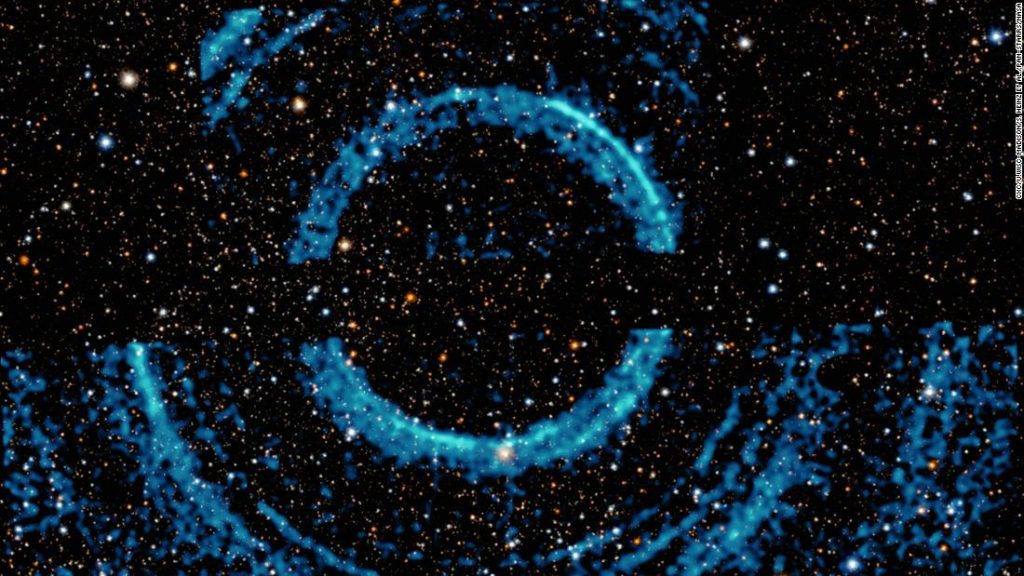(CNN) – Black holes are one of the last mysteries of the universe that is hard to imagine. But thanks to a recently released NASA image, we can now visualize a slightly better picture.
the NASA’s Chandra X-ray Observatory The Neil Gehrells Fast Observatory has detected bright spectral rings around a black hole. X-ray images reveal what may be invisible.
A black hole is in a binary system with a companion star, and the black hole’s gravity pulls material away from the star and forms a disk around it.
The stellar black hole system is called V404 Cygni and is located about 7,800 light-years from Earth. The star is half the mass of our Sun.
The Swift Space Observatory, launched in 2004, detected an X-ray burst from the binary system in June 2015. This burst created active rings that can be seen in X-ray images.
light echoes
The phenomenon that created the rings is the echoes of light. They were created in this system when X-rays from the binary system were reflected on dust clouds scattered through the space between the V404 Cygni system and Earth.
Space is full of dust, but it is more like smoke filled with small solid particles.
A new image released by NASA combines X-rays spotted by Chandra with data collected in optical light by the Pan-STARRS telescope in Hawaii, which fills the surrounding stars.
In 2015, Chandra observed the system on July 11-25, while Swift did so between June 30 and August 25.
Eight rings created by X-rays from the 2015 eruptions can be seen bouncing off dust clouds. These rings could help scientists better understand the black hole within the V404 Cygni system, as well as the cosmic space between the system and Earth.
The diameter of the rings allows the researchers to determine the distances of dust clouds that were used to create the illuminated rings. The larger the ring, the closer the cloud is to the Earth.
Another use of X-rays
The researchers also used X-rays in a manner similar to how they are used for checks in doctors’ offices or for baggage scanners at the airport.
This means that they were able to use the brightness of the X-rays to determine the composition of the dust clouds based on the amount of X-rays they absorbed. The researchers discovered that the dust was most likely composed of graphite and silicate grains.
The new image is another fascinating perspective on mysterious black holes and how X-ray observatories can illuminate unseen aspects of the universe.

“Proud web fanatic. Subtly charming twitter geek. Reader. Internet trailblazer. Music buff.”

:quality(85)/cloudfront-us-east-1.images.arcpublishing.com/infobae/TEQF6EONZRFGLLLDIDD4L2O4EE.jpg)

:quality(75)/cloudfront-us-east-1.images.arcpublishing.com/elcomercio/XU32LRAEZFDDPNVHLFU3CKVBYY.jpg)



More Stories
How to create 3D videos with my iPhone, it will be very useful even for your business
NASA discovers an anomaly in the Earth’s magnetic field that could have serious consequences for humans
Can the Earth be divided into two parts?